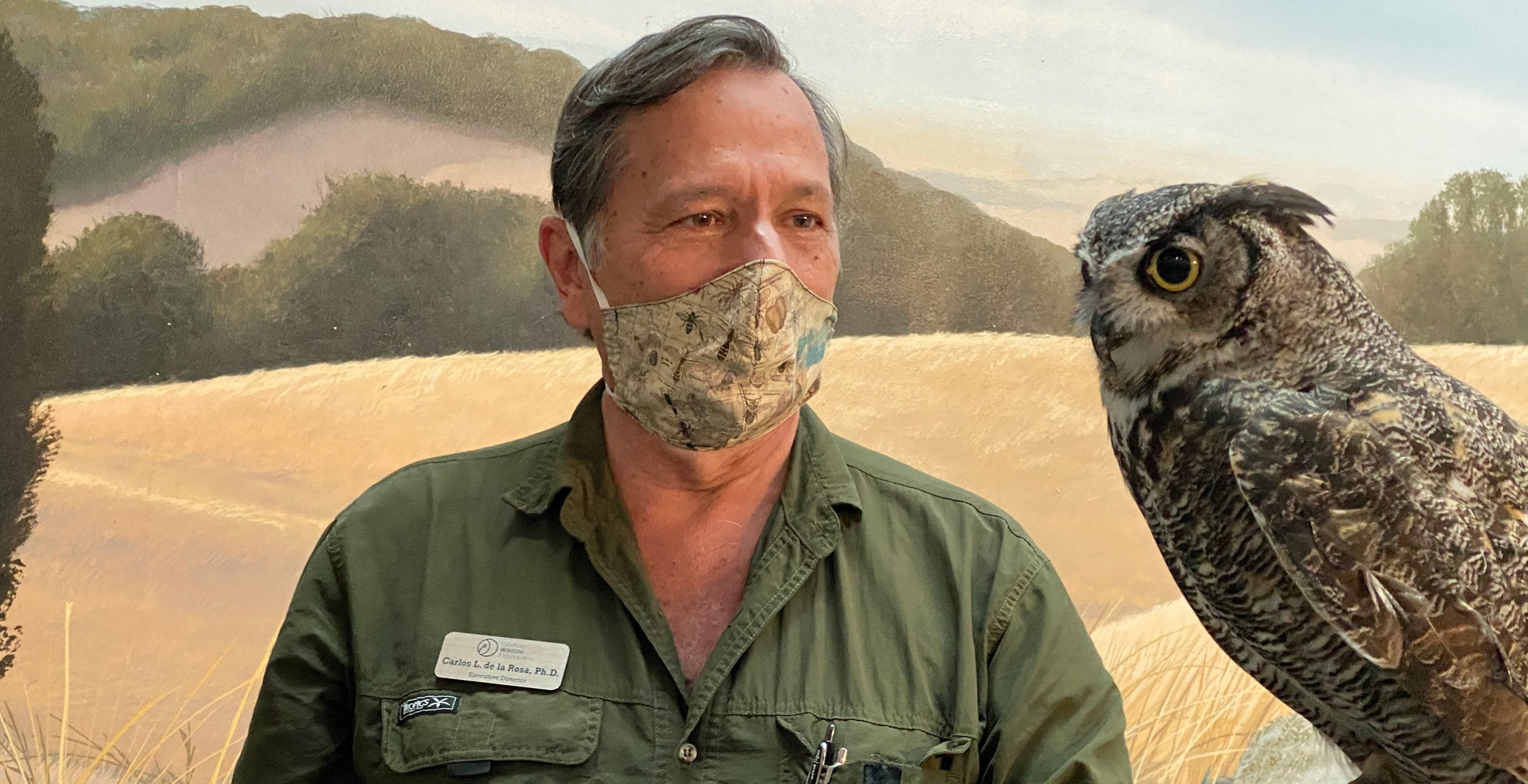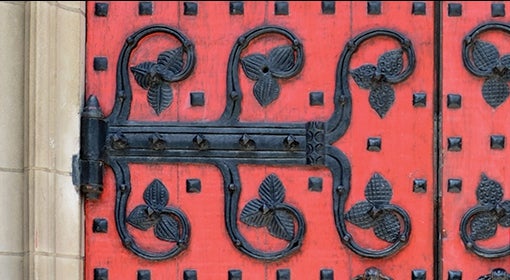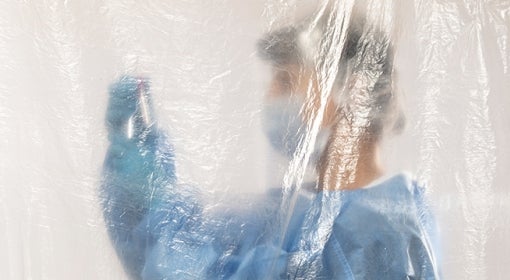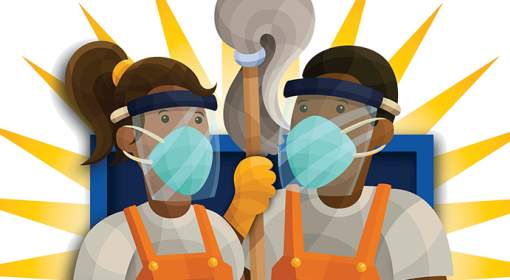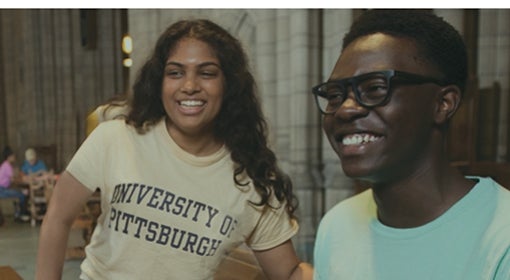Carlos de la Rosa’s interest in nature started out small. As an 8-year-old on his family’s ranch in the Venezuelan countryside, a makeshift magnifying glass in hand, he discovered a world of ants, mites and other minuscule creatures. Later, as an undergraduate in Caracas, he met William Coffman (A&S ’67G), then a Pitt biology professor and expert on tiny flies called non-biting midges. De la Rosa became inspired to study with him in Pittsburgh, where he earned degrees in biology and aquatic ecology.
Decades later, de la Rosa (A&S ’80, ’85G), now a seasoned educator and conservation ecologist, is focused on the big picture—and how humans can have huge consequences on our environment. He’s the executive director of the Lindsay Wildlife Experience in Walnut Creek, California, home to 60 animal ambassadors and the country’s oldest wildlife hospital and rehabilitation center. One of his most important missions: to inspire the public to environmental action.
What excites you about your work at the Lindsay?
When you see a hawk or an owl right in front of you, that close-up physical connection causes an emotional as well as an intellectual transformation. We provide these emotional and stimulating experiences with animals that help people understand their relationship with them.
Why is it so important to you to connect people with nature?
I don’t think anyone can avoid being an environmentalist right now. If we really care about the world and care about people, we need to change our behaviors and change the way we interact with nature. The pandemic, biodiversity crisis, deforestation, climate change: Those things are happening because we’re not listening to the science.
How does the COVID-19 pandemic relate to environmental challenges?
When we continue to encroach on whatever remaining natural areas are left, we continue to expose ourselves to things we’ve never seen before. In some ways it has allowed scientists to discover species that are new to science, which is exciting. But of course, our endless hunger for more and more natural resources is exposing people to pathogens that we had never before been exposed to.
Why is it important to save species that we don’t even know about or understand yet?
Our lives, our future medicines, our future foods depend on us protecting what is left of biodiversity. For me, this is personal. When I was diagnosed with metastatic cancer more than 30 years ago, I was saved by medications originally extracted from the rosy periwinkle, a plant with powerful cancer-fighting agents found in the forests of Madagascar. New medicines have always come from the forest, and we’re not telling that message.
What’s your biggest challenge right now?
Honestly the hardest thing that I have to do right now is remain positive, remain optimistic. … We need to have hope to turn this thing around. Every individual can make a humongous difference, but it starts with you.
Cover image: Carlos de la Rosa holds Bubo the great horned owl, a resident at Lindsay Wildlife Experience.
This article appears in the Spring 2021 edition of Pitt Magazine.

